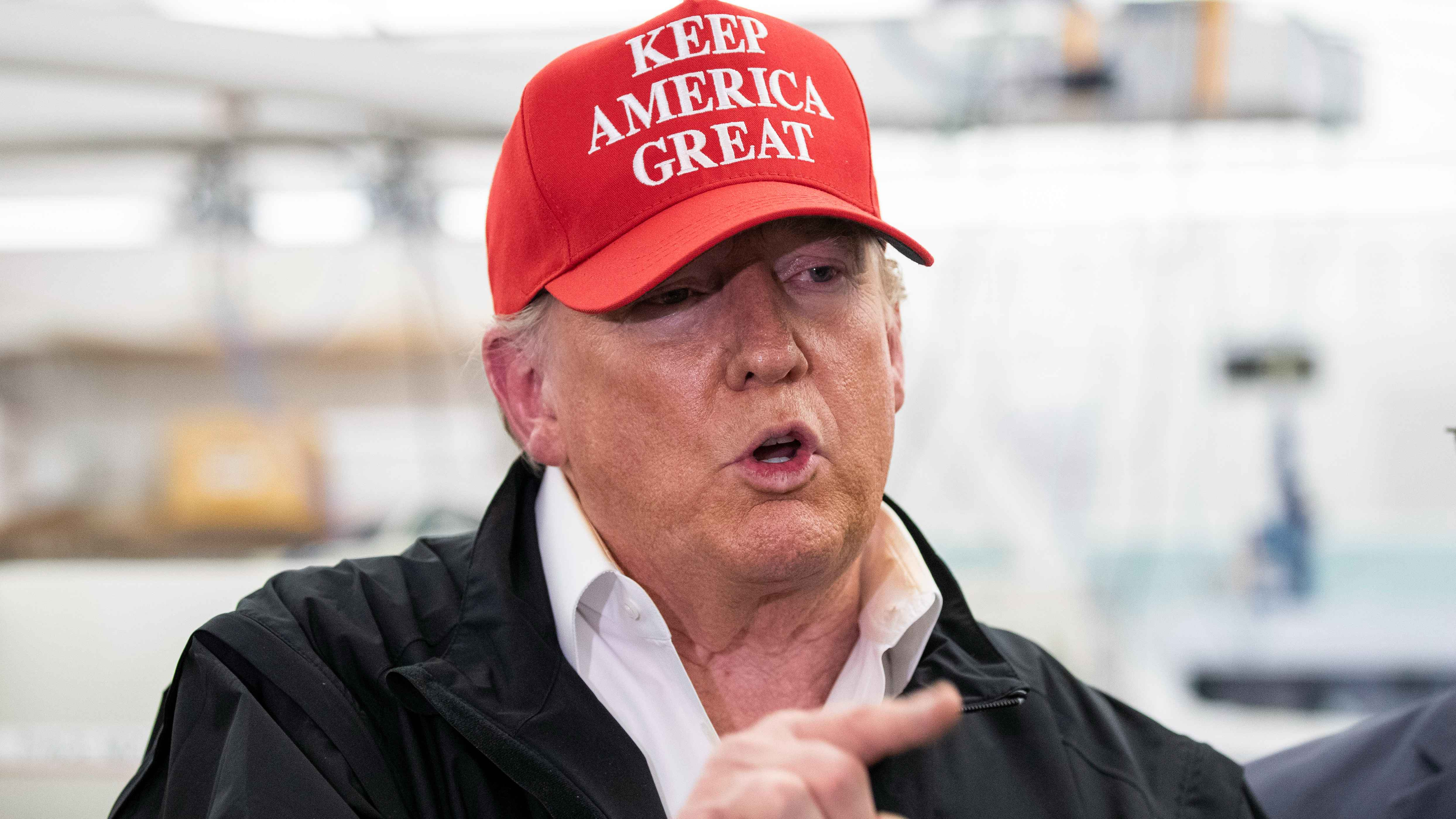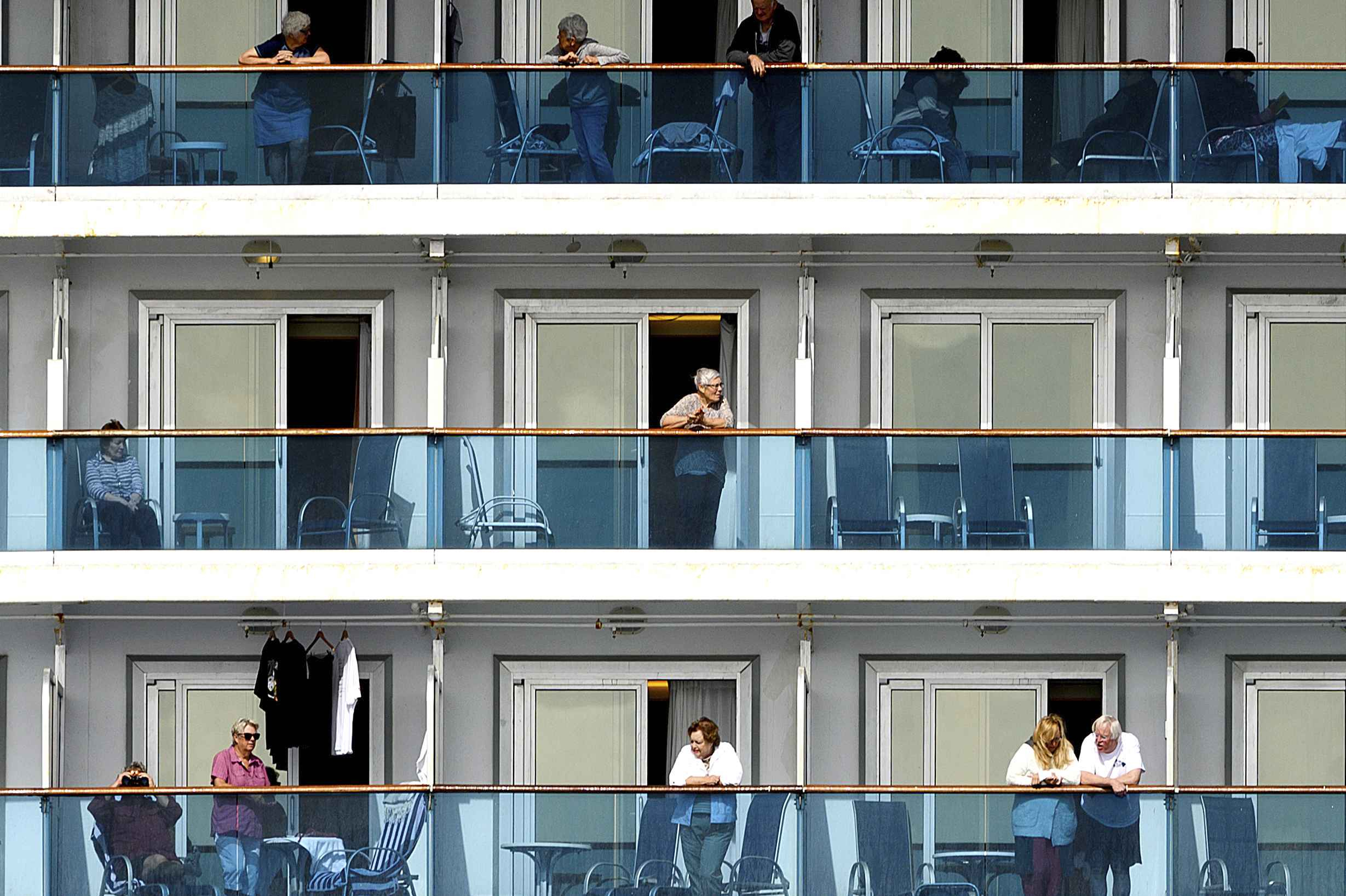
U.S. President Donald Trump defended the "perfectly coordinated" U.S. response to the coronavirus epidemic Sunday amid heavy criticism over health cuts and strategic blunders that have failed to stem its rapid spread.
The number of confirmed coronavirus cases in the country has soared past 500 including two new deaths. The virus has reached 30 U.S. states, with Oregon the latest to declare a state of emergency on Sunday, and 60 million people in California and New York states under crisis measures.
Two more deaths were reported in Washington State – both linked to a virus-hit care home near Seattle – bringing the nationwide toll to at least 21.
Trump, who has been accused of peddling misinformation on the outbreak, blamed the media in a tweet for trying to make his government "look bad."
"We have a perfectly coordinated and fine-tuned plan at the White House for our attack on CoronaVirus," Trump tweeted.
"We moved VERY early to close borders to certain areas, which was a Godsend. V.P. is doing a great job. The Fake News Media is doing everything possible to make us look bad. Sad!"
But Larry Hogan, the Republican governor of Maryland, criticized Trump, telling NBC the president "hasn't communicated the way I would, and the way I might like him to."
New York governor Andrew Cuomo said federal health authorities had been "caught flat-footed" and had "handcuffed" the ability of individual states to respond.
"Their messages are all over the place, frankly," he told Fox News.
Trump has been heavily rebuked for repeatedly contradicting the advice of his administration's experts in his public pronouncements about the coronavirus.

Shoppers rush to pick up toilet paper that had just arrived at a Costco store in Tacoma, Washington, March 7, 2020. /AP Photo
Shoppers rush to pick up toilet paper that had just arrived at a Costco store in Tacoma, Washington, March 7, 2020. /AP Photo
President to blame
Trump has downplayed the threat posed by the epidemic, which according to the WHO has spread to over 100 countries and regions around the world, suggesting cases were "going very substantially down, not up," falsely pledging that a vaccine would soon be available and claiming that the official estimate of the death rate was "false."
From the start of February, the Trump administration focused on cutting off travel from China and imposing quarantines in an effort to keep the virus out of the United States.
Epidemiologists say the initial containment effort may have slowed the arrival of the virus but accuse the White House of wasting time with a strategy concerned more with the political narrative than domestic readiness.
Chief among the complaints has been the lack of testing caused by the Centers for Disease Control and Prevention (CDC) developing its own flawed kits, rather than using those approved by the World Health Organization.
Meanwhile critics point to deep CDC cuts and the White House's removal of a position on the National Security Council for responding to pandemics.
Oregon became the latest state to declare an emergency as the number of patients in the northwestern state rose to 14. Governor Kate Brown said the measures to "unlock" key resources would remain in place for at least 60 days.

Passengers look out from balconies aboard the Grand Princess as it cruises a holding pattern about 25 miles off the coast of San Francisco, U.S., March 8, 2020. /AP
Passengers look out from balconies aboard the Grand Princess as it cruises a holding pattern about 25 miles off the coast of San Francisco, U.S., March 8, 2020. /AP
Locking down entire cities
Officials reported that two people at the recent Conservative Political Action Conference attended by Trump and the administration's coronavirus point man, Vice President Mike Pence, had tested positive for the new coronavirus.
Anthony Fauci, director of the National Institute of Allergy and Infectious Diseases, told NBC that officials were "accelerating dramatically" on coronavirus testing.
He told Fox News the possibility of following Italy's example in locking down large sections of the population, or even entire cities, could not be ruled out.
California prepared to disembark passengers from the Grand Princess, a virus-hit cruise ship with 21 novel coronavirus infections among the 3,500 people on board.
It is set to dock in Oakland on Monday after four days held off the coast of nearby San Francisco.
Passengers "will not be released into the general public" but will either be moved to hospitals for treatment or to federal "isolation facilities" in California, Texas and Georgia, officials said Sunday. Several hundred foreign passengers will be repatriated to their countries.
(Cover: U.S. President Donald Trump speaks during a meeting about the coronavirus at the Centers for Disease Control and Prevention, March 6, 2020, in Atlanta. /AP)
Source(s): AFP